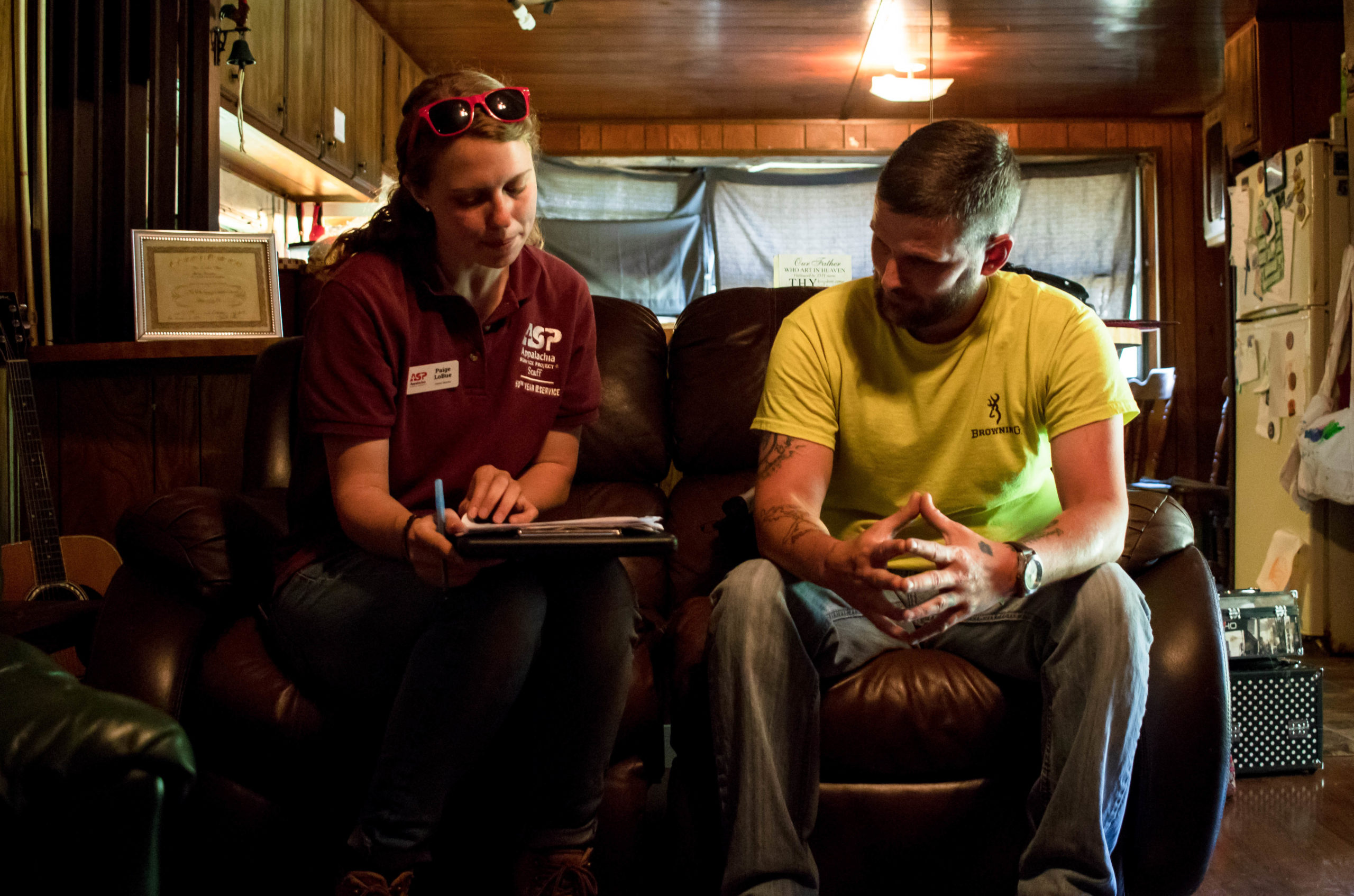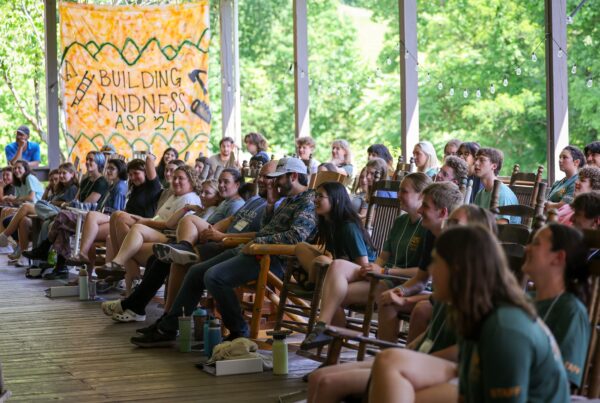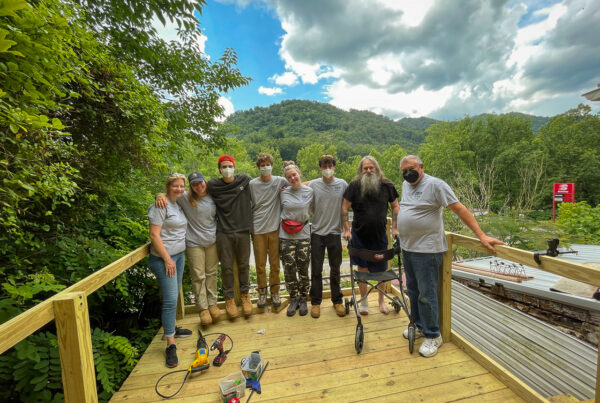This blog post comes from 2018’s summer blog series Feels Like Home and has been adapted for the Nuts & Bolts series.
What are Initial Home Visits?
Initial Home Visits, or IHVs, are when ASP representatives meet the family see a home repair applicant’s house to assess need, and determine any safety concerns. After the visit, the staff or other ASP representative fills out a Qualification Ranking System scorecard to have a quantifiable measures. They measure the comfort level of the family, the safety of the worksite, and assess the project needs at the home.
During Set Up Week (the week before the first group of volunteers arrive), the average staff will visit 30 to 40 applications. In most ASP counties, well over 100 applications are on file. Of those 30 to 40 applications, the staff will be able to work for 12 to 20 families.
Making these decisions is hard. An application might take a long time to drive to from the center. The project might be of such a large scale that ASP might not be able to complete all of the projects within the 7 or 8 weeks of volunteers. The stories are endless, but our staff will have to say No more than they get to say Yes. Below, you’ll hear two accounts of what IHVs are like.
Saying No by Jamie Tews
On paper, I am Jamie Tews from Glen Ellyn, IL. I am a twenty-one-year-old recent college grad, daughter, and sister.
On paper, I am one dimensional. I am a character created by facts. While these facts portray parts of who I am, they fail to display my sense of humanity.
Humanity is not something that can be found through facts on paper. We can barely even begin to explore the landscape of a person based on a name, address, and income provided by a piece of paper; however, that piece of paper has the ability to introduce us to a person.
Every summer when ASP staffers arrive in their county, we spend the first week doing initial home visits. We gear up in polos, pants, and name tags with a binder of applications in tow – applications that stem from places all over the county. When we pull up to the house listed on the paper application, we talk about who the family is. We read about the mom, dad, and two little kids who are living in a home with rotted floors. We read about an elderly woman who hasn’t had a working bathroom in years. As we read the names, ages, and situations, we are able to keep the people at a distance.
A mom from Leslie County is just a mom; a kid from Breathitt County is just a kid, and then, all of a sudden, they’re not. Because when we step out of our trucks, knock on the front door, and look into the eyes of the person behind the application, they are no longer just a name on a piece of paper. A mom from Leslie County becomes Karri, a woman who makes s’mores in the microwave and sits on her steps in the evening to watch her children swing in a hammock. A kid from Breathitt County becomes Haley, a girl who wants to be a veterinarian and is saving up money to serve with a mission team in Africa. The names that fill our application binders quickly become people living lives as a vivid as our own, and the unity of the humanity that manifests itself within us all is what makes telling families we are unable to work on their home so hard.
The hardest part about telling a family that ASP cannot work on their home is the fact that as soon as I shake their hand or laugh with them on a front porch, I am truly able to empathize. Once empathy settles into my heart and urges me to send vans full of volunteers to meet the person sitting next to me on a couch, the last thing I want to do is decline their request for home repair. When I stand with a man beneath his leaky roof, I am not reading the words “roof leaks when rains” in the comfort of my van, but I am standing on a warped floor beneath a patch of crumbled ceiling drywall in his home, and that is a feeling that paper can never convey.
ASP is an organization that is rooted in the pursuit of doing good, and as a staffer, telling a family that we will not be building them a new porch, floor system, or room addition does not feel like a good thing. But we must find peace in the fact that even though we have to turn away from so many families, we are also able to work with many others, and the feeling of telling a family that they are going to receive the work they need is exhilarating.
Saying Yes by Matt Headland
While we do have to say no to far too many families, we are so glad to serve the families we can. In my three summers as an ASP staffer, I’ve said no to more people than I’ve said yes to. I want this to be different, but for now, we’ll focus in on one story of an amazing yes, and in fact, my first one.
Hancock County, Tennessee is home to just under 7,000 people. One of those people is particularly special to me: Dianna. Standing at a striking four feet and ten inches, Dianna’s personality is about twelve times as big as her small frame. Sarcastic, honest, and sometimes a little brash, Dianna is a person you don’t soon forget. I first met her in late May of 2015 on an Initial Home Visit, or IHV. This was my very first day of IHVs and my staff was rolling four deep in our van. After a long day of driving around Hancock County, we ended with a stop right in Sneedville, the county seat. We rolled up to a little blue house with a big branchy bush out front. After knocking on the door, we were greeted by Dianna’s gruff, “hello?”
My center director Lindsay tasked me with leading this IHV, and boy, am I glad she did. Dianna and I had an instant bond that started from snarky comments. At first, she was a little shy showing us around her home, but she quickly warmed up to us, and to me in particular. After she gave us a brief tour of the inside of her home, she took me back outside to continue the tour while the rest of my staff stayed inside to take measurements and draw diagrams. This was a bit of a nontraditional IHV leadership style, but I stand by my choice. Dianna showed me her garden and her plans for it in the future. I told her about my dad’s petunia’s back home that he would soon be planting. She told me all about her life and how she came to Hancock County. She’d been a truck driver, a mother, and a wife, so she was tough as nails. It became clear to me that she didn’t take crap from anyone, so what did I do? I made a short joke. She laughed, made fun of my skinny legs, and kept on going with her stories, soon pulling my own life story out of me. Where was I from? How many siblings did I have? Why was I working for ASP?
Meanwhile, my staff was inside taking pictures of floors with gaping holes in them. A bedroom with no insulation underneath it. A roof that leaked. A wall rotted away from water coming down the mountain. It was clear to all of us that Dianna needed work done at her home. To me, I knew I had immediately made a friend and confidant in this elderly woman. I thanked her for showing us around, and the four of us made our way back to the van. Just as we were about to get in, Lindsay blurted out, “I want to work there.” The rest of us let out a big breath and agreed. Lindsay said, “Do you want to go tell her?”
We ran back to the little blue house and I rapped my knuckles on the door. Dianna, startled, opened the door and said, “You weren’t gone long, honey.” We excitedly told her we were going to work there and that we’d be back with paperwork the next day. In what I now see as the most Dianna way of responding to this news possible, she said, “Well that would be alright.”
We spent 8 weeks working on Dianna’s home. 56 different volunteers met her, and I’d be surprised if even one of them has forgotten her. Since that summer, I’ve visited Dianna on many occasions, and she offers me life advice I trust and follow. We reminisce about our summer together and the people who worked on her house, and she still thanks us for what we did. When she does, I thank her for all she’s taught me about strength, grit, and perseverance. I trust that little lady, and am so grateful she applied for ASP home repair. That late afternoon 4 years ago is still fresh in my memory, and I’m so glad my staff got to say ‘yes.’ If you ask any summer staffer, they’ll have a story like this. Connection and relationship is what keeps ASP going, and it shows no sign of stopping.
If you’re interested in learning more about how you can help ASP say “Yes!” to more families, check out ASPHome.org/StayInvolved.
Jamie Tews is the Advancement Storytelling Intern this summer writing a weekly blog series titled “This Must Be The Place.” Prior to this summer, she was on staff in Breathitt County, Kentucky in 2016, Leslie County, Kentucky in 2017, and roamed around Appalachia as a staff liaison in 2018. She just graduated from Indiana Wesleyan University with a Bachelor’s degree in English and Writing, and she has plans to pursue an MFA in creative writing.
Matt Headland is a member of ASP’s Volunteer Experience Team. Throughout the year he focuses on new volunteer recruitment, retention, and media.




